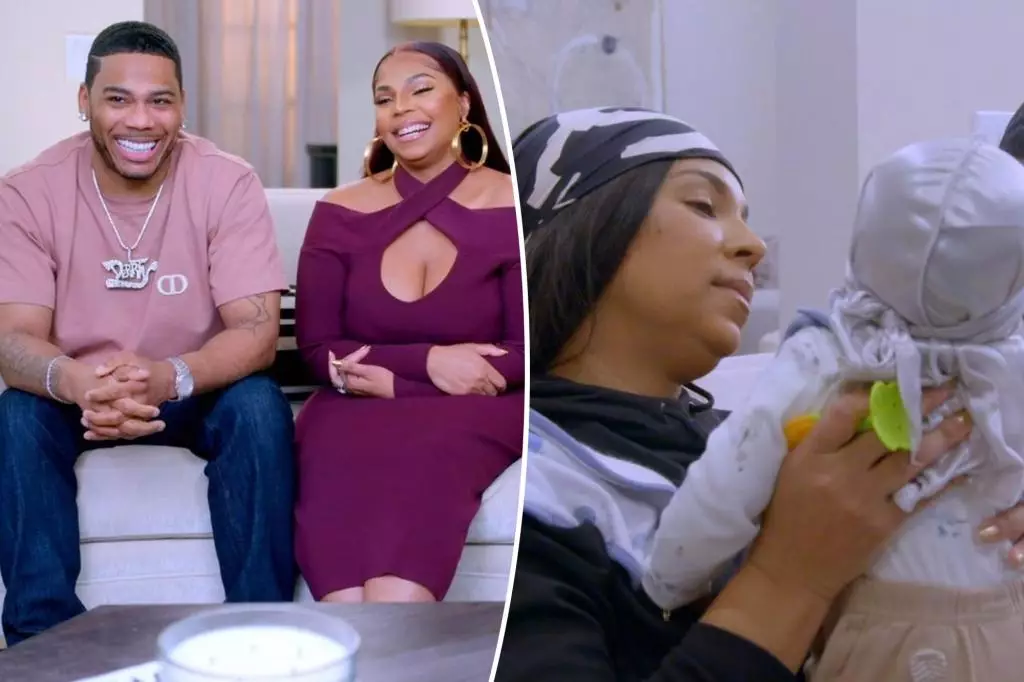Celebrity life often magnifies the everyday experiences of parenting, revealing the nuances—and challenges—in a way most people seldom see. Nelly and Ashanti, both established figures in the music industry, have recently opened a window into their family life through their reality show *Nelly & Ashanti: We Belong Together*. What could have been a straightforward portrayal of co-parenting instead sparked controversy and sparked a larger conversation about the evolving roles of dads in the modern family structure.
At the heart of the discussion is Nelly’s blunt refusal to handle diaper changes for their infant son, Kareem. His unapologetic stance—that all nighttime diaper duty and comforting falls squarely on Ashanti—elicited a mix of humor and frustration both on the show and online. The clip’s reception highlighted a tension many couples face but is less commonly aired so candidly: the unequal distribution of hands-on childcare responsibilities.
Balancing Roles or Dodging Duty?
It’s easy to laugh at Nelly’s offhand joke about “no diaper changes on my watch” or his quip about waiting until Kareem can walk and talk before he takes on more active parenting duties. However, this stance is emblematic of a deeper reluctance some fathers display toward early, demanding stages of child-rearing. While Nelly’s perspective is arguably honest—he acknowledges that he’s not the nighttime caregiver—it also underscores a problematic dynamic. Parenting is a partnership that demands shared responsibilities, especially during those exhausting first months when infants require near-constant attention.
Ashanti’s visible frustration—eye-rolling, sighing, and expressing how “a lot” the care workload is—resonates with many mothers juggling newborns largely on their own. Social media’s response, labeling Ashanti a “married single mom,” points to a growing impatience with traditional gender roles that place the bulk of childcare burdens on mothers. Whether Nelly intends it or not, these non-participatory comments fuel resentment and highlight an outdated perception of fatherhood as less hands-on or even optional in infant care.
A Historical and Cultural Context
Nelly, a father to four older children, claims “cruise control” parenting with his previous kids and relies on nannies for Kareem. This reveals another layer: the commodification of childcare in affluent households. While providing paid help can be incredibly beneficial and necessary, it cannot completely substitute for a parent’s active emotional engagement. His admission about “living vicariously” through Ashanti’s journey might sound affectionate, but it subtly distances him from the daily, tactile realities of fatherhood.
Moreover, the public scrutiny Nelly faces is not only about a snarky quote on a reality show; it reflects shifting societal expectations. In recent decades, parenting has seen a transformation—men are increasingly encouraged to be more present and involved in all phases of child-rearing. Traditional stereotypes where fathers are distant breadwinners and mothers remain primary caregivers are being dismantled, and the spotlight on celebrities adds pressure to set better examples.
Relationship Dynamics Beyond the Lens
Ashanti and Nelly’s decade-long relationship, culminating in a secret marriage in 2023 and the arrival of their son a year later, suggests a complex and enduring partnership. However, the public airing of such private disputes, whether orchestrated for reality TV or not, reveals cracks in their communication about parenting roles. While fame and media presence can be powerful tools for sharing positive narratives about fatherhood and partnership, they can also exacerbate misunderstandings and invite public judgment that spills over into their family life.
Nelly’s assertion that he “provides whatever Ashanti needs” positions his role largely as provider rather than participative parent. This dynamic might work for some couples, but the criticism from fans and observers shows a disconnect between what audiences expect from modern parenting roles and what is practiced behind the scenes.
Reevaluating What It Means to Be a Dad Today
The viral clip and ensuing backlash won’t likely transform Nelly overnight, nor fully shift traditional mindsets shaped over generations. Yet, moments like these demand reflection: active parenting is multifaceted and involves far more than financial support or stepping in when children reach certain developmental milestones. It’s about the willingness to share not only the joys but the exhausting, less glamorous tasks—like late-night diaper changes—with empathy and responsibility.
If the modern fatherhood ideal is about breaking away from outdated norms and embracing hands-on involvement, Nelly’s candid confession serves as both a reality check and a call to raise the bar. Humor aside, the real work of parenting asks for more than just financial provision—it requires presence, patience, and partnership every step of the way.

